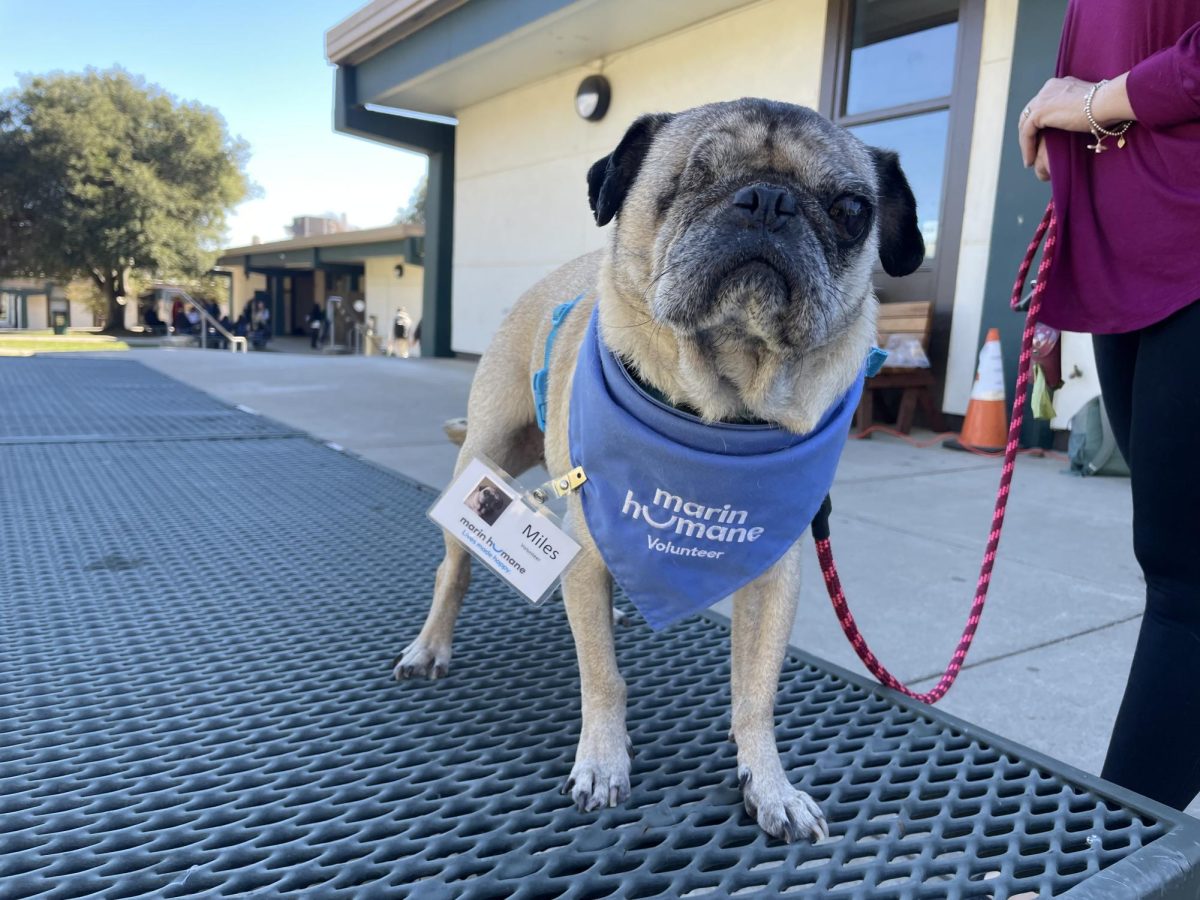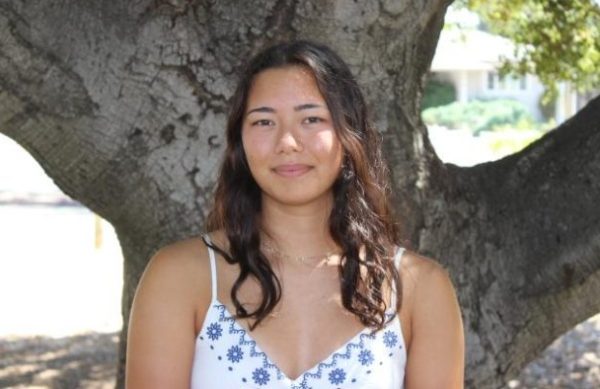For those missing their furry friends while at school, the Marin Humane therapy dogs can occasionally be found at the Wellness Hub to provide a quick serotonin and dopamine boost for stressed-out students.
The Wellness Hub began bringing dogs last year at the request of the Student Wellness Ambassadors Program (SWAP) to drive more student interest in the Hub.
In addition to increasing the Wellness Hub’s popularity, companion animals have also proven to have positive effects on the well-being of humans.
According to Johns Hopkins Medicine, petting a dog lowers blood pressure and cortisol levels, a stress-related hormone.
Wellness Hub Specialist Caley Keene reinforces how animals have a calming effect in a busy school setting with students worrying about homework, tests, or projects.
“Dogs in particular are good at bonding with people, they’re also pretty in tune with human emotion. There’s some science that says that they can smell feelings just because the chemistry in our bodies changes,” Keene said.
The dogs are a part of Marin Humane’s Animal-Assisted Therapy Program, created to bring joy to the community by sharing the bond and history between the volunteers and their dogs.
Darlene Blackman, Marin Humane’s Vice President of Community Engagement and director of the Animal-Assisted Program, created the seven-week training to prepare volunteers and their dogs to participate in the program.
Blackman tries to fulfill every request for volunteer visits, believing that the human-animal companion bond is beneficial to anyone.
“Even if it’s just in the moments that you’re there with your dog, that can make a big impression on someone’s day,” Blackman said.
Other organizations that the assisted therapy program works with include senior venues, hospitals, and children’s programs at the library.
One therapy dog who frequents San Marin’s campus is Miles the pug and his owner Molly Foley. Foley knew from the moment she got Miles that he was a suitable volunteer.
“He loves to be pet, he loves to sit in people’s laps, he’s laid back, easy-going… he doesn’t get tired of it. He could stay here all day being pet,” Foley said.

The animal-assisted program is looking for more volunteers, with next training class in January of 2025.
The process includes a prescreening to gauge whether the dog is a good fit behaviorally. They are then introduced to children, hospital equipment, and an obstacle course to get a feel for what the dog is comfortable doing.
“We go through a variety of scenarios that the dogs might come in contact with. From there, we help lead the volunteers with what we think would be most appropriate for them and their dog,” Blackman said.
If volunteers are interested, email Blackman at [email protected] for information on how to prepare for the class.







































